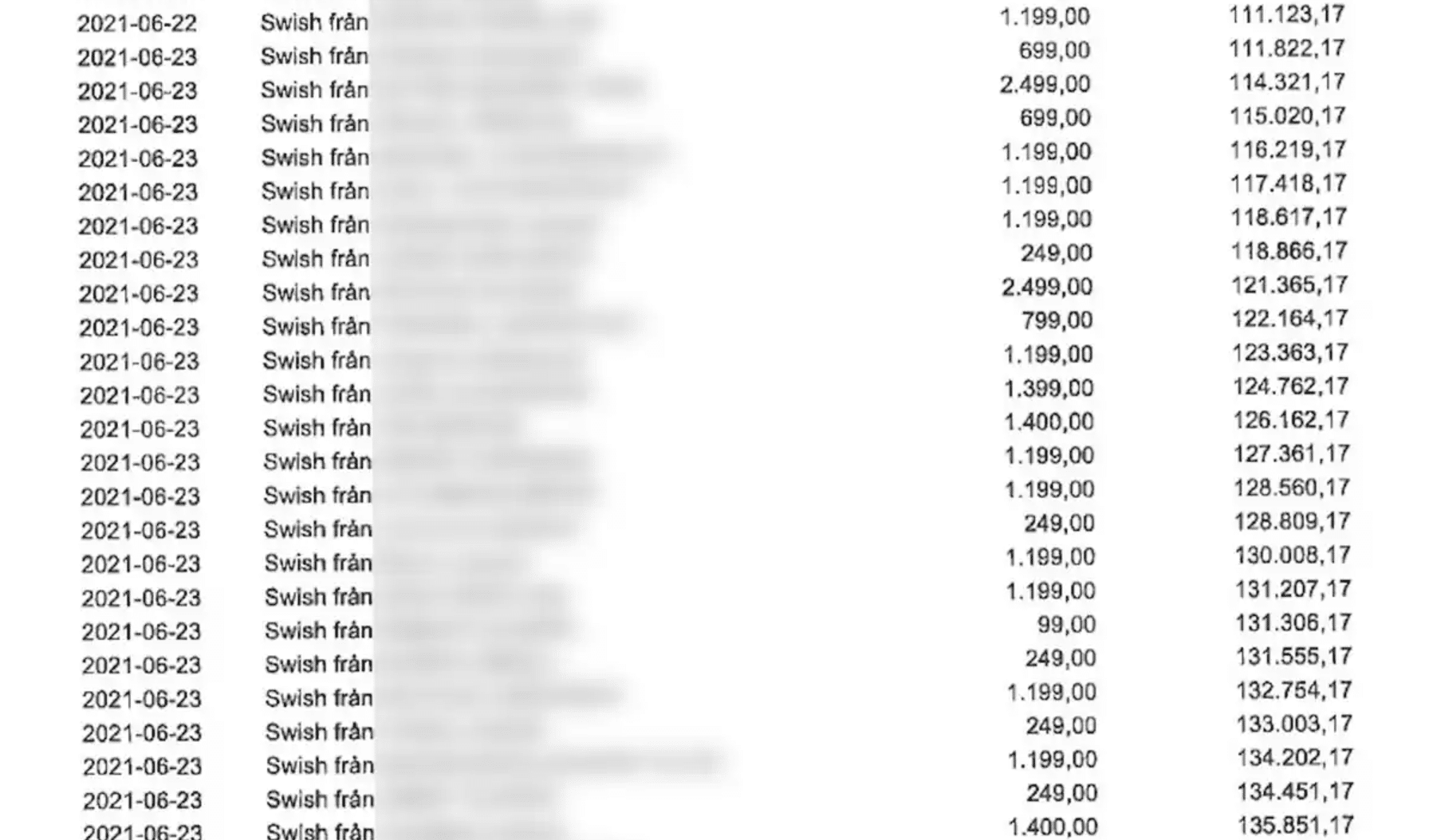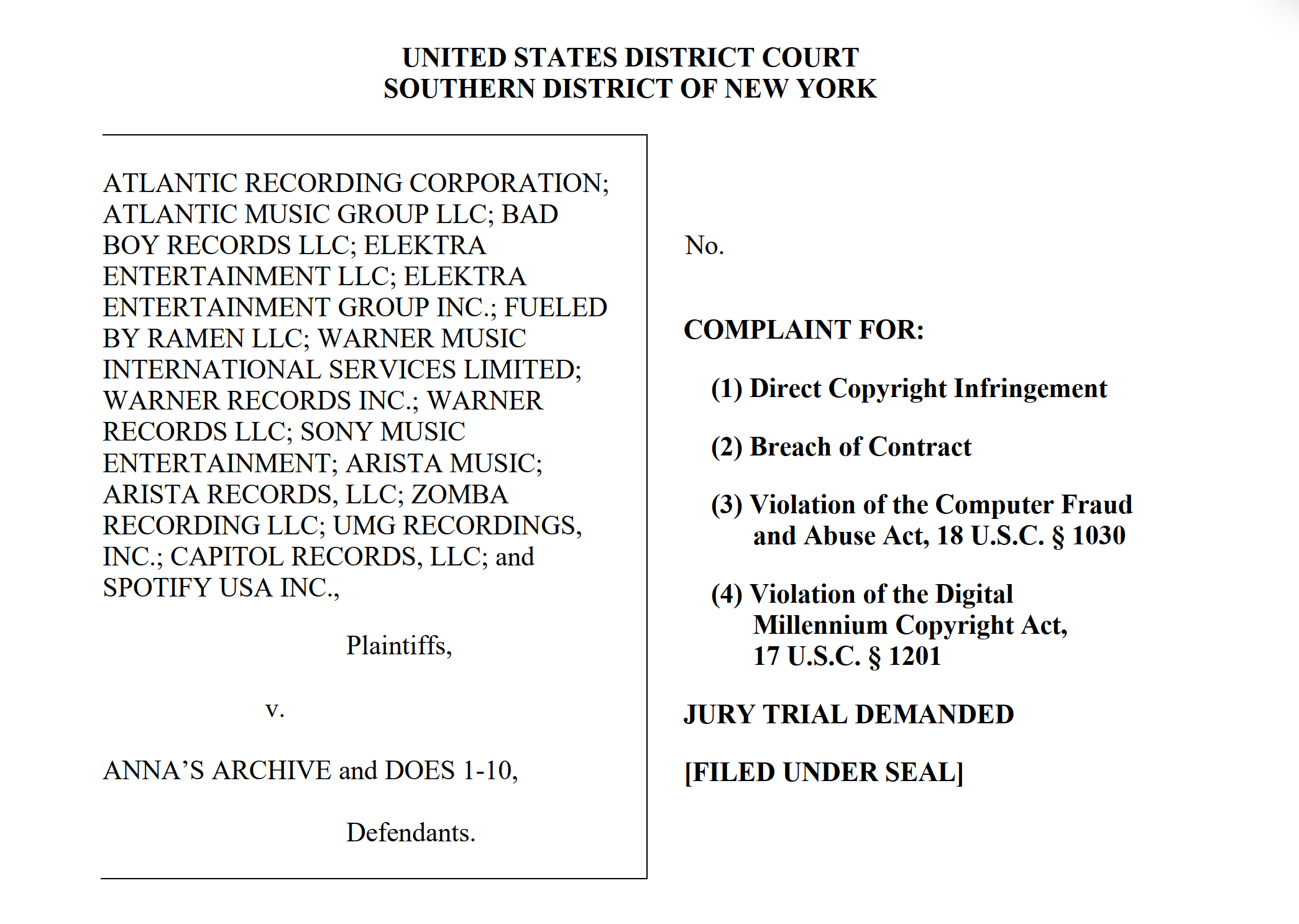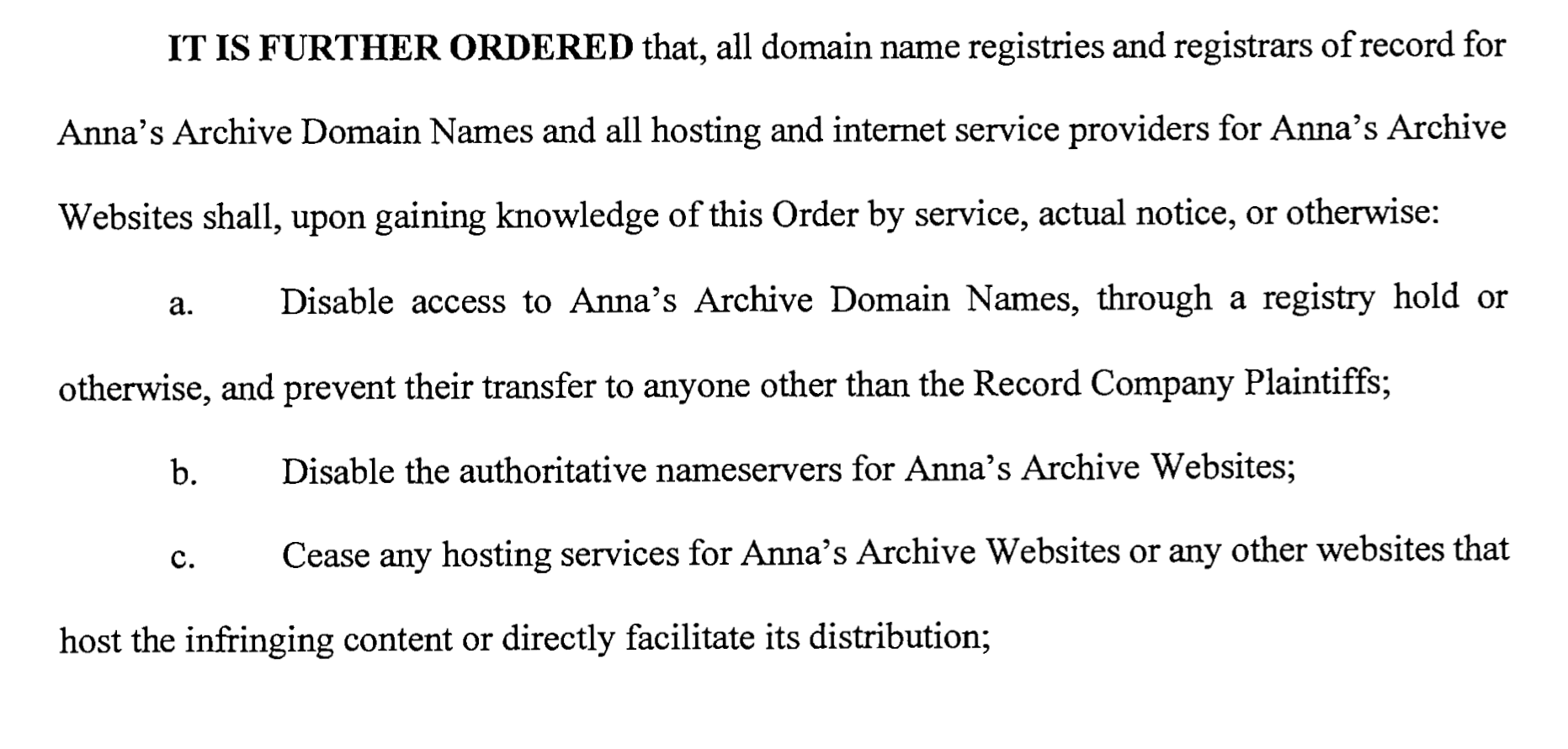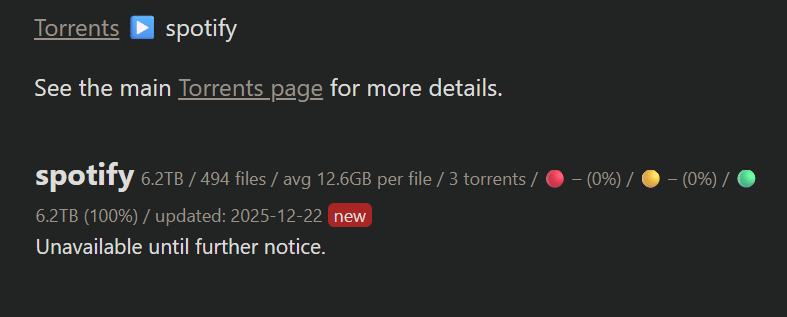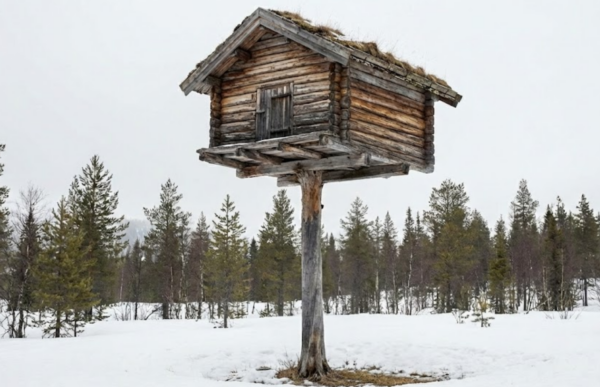 Njalla is the name for a traditional Sámi hut, specifically designed to function as a safe storage location, keeping food away from bears and other predators.
Njalla is the name for a traditional Sámi hut, specifically designed to function as a safe storage location, keeping food away from bears and other predators.
On the web, the Njalla name was adopted by a privacy-focused domain name service that helps to shield website operators from external threats, including takedown efforts and foreign court orders.
Music Industry vs. Anna’s Archive
Earlier this month, this feature of
Njalla
was brought to the fore again in the lawsuit Spotify and several record labels filed against
Anna’s Archive
. Fearing the publication of
millions of scraped tracks
, the music companies obtained a preliminary injunction to shut off the archive’s domain names.
The case was
filed under seal to prevent tipping off Anna’s Archive
. This partially worked, as the suspension of the .ORG and .SE domain names came as a surprise. However, Anna’s Archive was certainly not planning to throw in the towel.
After the federal court in New York issued an
ex parte
temporary restraining order on January 2, the
.ORG registry suspended
the official annas-archive.org domain. Around the same time, Cloudflare also complied with the court order, disabling the nameservers for the targeted domains, including annas-archive.li.
Njalla nameservers
U.S. Domain Suspension Injunction
While these actions rendered several of Anna’s Archive unreachable, the .LI variant soon became accessible again. Instead of relying on Cloudflare’s nameservers, it switched to Njalla. The same also applies to the .PM and .IN domains, which were registered as a backup.
Spotify and the labels also noticed this switch to Njalla and, while the case was still under seal, they applied for a broad preliminary injunction to cover the new domains. This also included Njalla as a targeted intermediary, alongside hosting services, domain registrars, and registries.
This injunction, signed by U.S. District Court Judge Jed Rakoff on January 16, does not only cover existing domain names but also any domain names that will be registered in the future.
The preliminary injunction
To get an idea of how these domains and services are connected, TorrentFreak compiled the following non-exhaustive and unverified overview. This also includes the new .in domain that was suspended by the National Internet Exchange of India.
|
Domain Name
|
Registry
|
Registrar
|
Proxy / DNS
|
|
annas-archive.org
|
Public Interest Registry (PIR)
|
Tucows Domains Inc.
|
Unknown
|
|
annas-archive.li
|
Switch Foundation
|
Immaterialism Ltd.
|
Njalla
|
|
annas-archive.se
|
The Swedish Internet Foundation
|
Hosting Concepts B.V. (Registrar.eu)
|
Cloudflare Inc.
|
|
annas-archive.in
|
National Internet Exchange of India
|
Tucows Domains Inc.
|
Njalla; IQWeb FZ-LLC (DDoS-Guard)
|
|
annas-archive.pm
|
Registry of record
|
Hosting Concepts B.V. (Openprovider)
|
Njalla; IQWeb FZ-LLC (DDoS-Guard)
|
U.S. Courts Have Limited Jurisdiction
The U.S. court order spurred American organizations into action (.ORG registry and Cloudflare) and also helped to get the .IN domain offline. However, not all intermediaries were eager to respond. In fact, the .PM and .LI versions remain accessible today.
While none of the intermediaries would encourage piracy, it appears that they don’t automatically comply with foreign court orders either. Njalla, for example, is
operated by Njalla.srl
, which is based in Costa Rica, may require a local court order to take action.
We don’t know for certain that the music companies sent the injunction to all named intermediaries involved, but given the gravity of their concerns, that would make sense.
To get more clarity, we asked Njalla for a comment on the situation, but due to privacy issues, it could not share any further information at this stage. The company did note that, generally speaking, it’s not against sharing culture.
“Since we are privacy focused people it is not possible for us to comment on this. However, we can say that we in general think the world becomes a better place when people share what they have with each other, be it food, water, money or culture.”
We also contacted the Switzerland-based
Switch Foundation
, which is the registry for the .LI domain, but did not receive a reply. Spotify, which previously responded to our inquiries, has also stopped responding.
AFNIC Confirms Jurisdiction Challenge
The AFNIC registry did respond to our request for clarification. The company is not mentioned in the injunction directly, but as the ‘registry of record’ for the .PM domain name, it should be covered.
AFNIC informs us that they have not received a request to comply with the injunction, nor have they been informed about the court order. However, even if it were to receive the U.S. injunction, AFNIC clarified that it would not comply.
“Decisions from U.S. courts are not directly applicable to Afnic regarding actions concerning .fr domain names or the French overseas extensions under its jurisdiction. To be enforceable, a foreign decision must be recognized by the French court,” an Afnic spokesperson informed us.
This effectively means that the plaintiffs must hire French counsel and petition a French court to recognize the U.S. judgment under Article 509 of the French Civil Code.
Whether Spotify and the music companies plan to go through this trouble is unknown. Anna’s Archive, meanwhile, has disabled the Spotify torrent downloads until further notice, which may have defused the situation somewhat.
That said, thus far the music industry’s enforcement efforts show that the reach of U.S. courts has its limitations. While it is possible to expand the scope through mutual legal assistance requests in foreign courts, these have yet to surface.
At this stage, the music industry doesn’t appear to know who is behind the site. The RIAA previously discovered that “Cyberdyne S.A.” was the registrant for the .se domain. However, that trace doesn’t appear to lead anywhere either.
“‘Cyberdyne’ is also the name of the fictional technology company in the ‘Terminator’ movie series behind the ‘Skynet’ artificial intelligence network that achieved super intelligence and self-awareness, leading to nuclear devastation,” RIAA’s content protection chief informed the court, noting that this may be a fabricated name.
—
Copies of the various unsealed court documents referenced in this article are available below.
–
Temporary Restraining Order
(TRO)
–
Declaration of Mark McDevitt
(RIAA)
–
Reply memorandum
requesting to expand the injunction
From:
TF
, for the latest news on copyright battles, piracy and more.
 chevron_right
chevron_right
 Five years ago, Bulgaria informed the U.S. authorities that it
would like to shut down prominent torrent trackers
such as ArenaBG, Zamunda, and Zelka.
Five years ago, Bulgaria informed the U.S. authorities that it
would like to shut down prominent torrent trackers
such as ArenaBG, Zamunda, and Zelka.
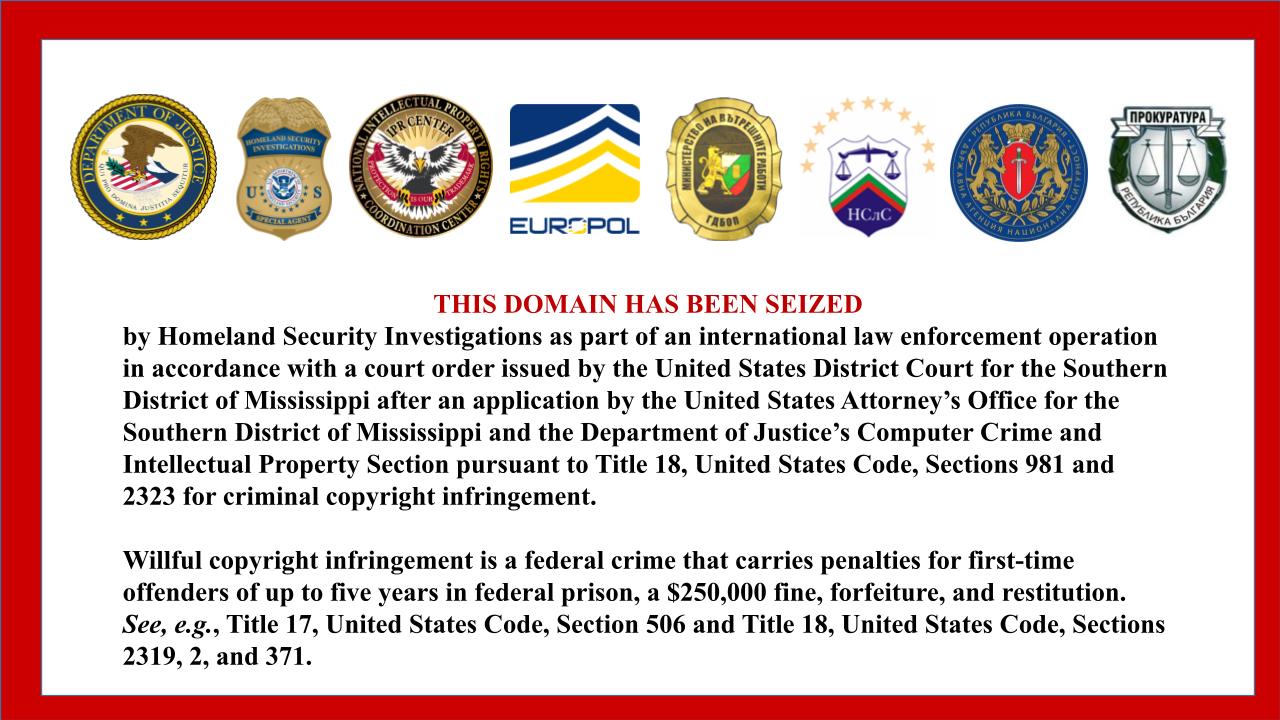




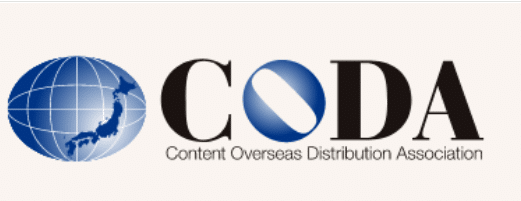 Last week, many Babato-related communities
Last week, many Babato-related communities
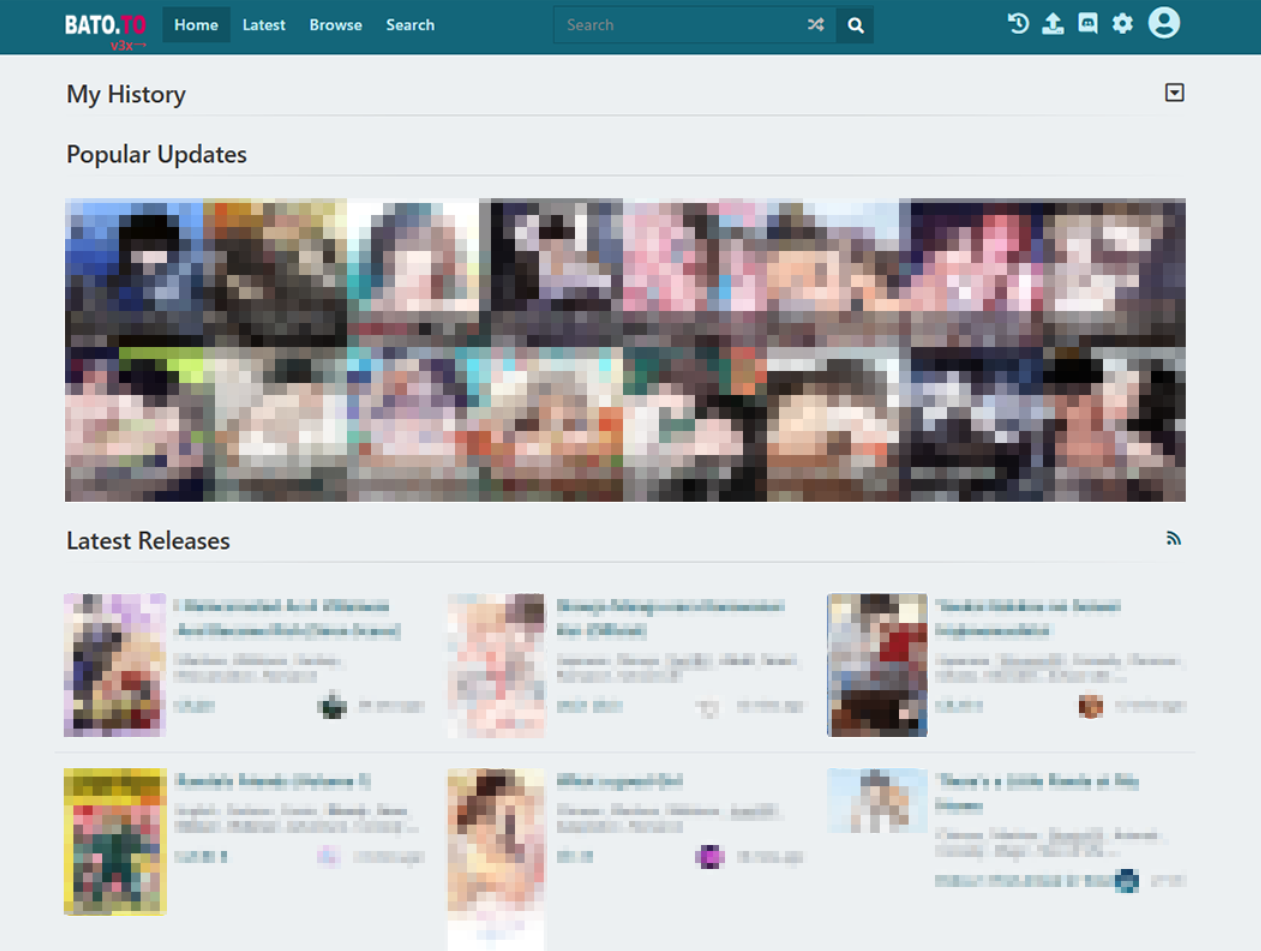
 Njalla is the name for a traditional Sámi hut, specifically designed to function as a safe storage location, keeping food away from bears and other predators.
Njalla is the name for a traditional Sámi hut, specifically designed to function as a safe storage location, keeping food away from bears and other predators.

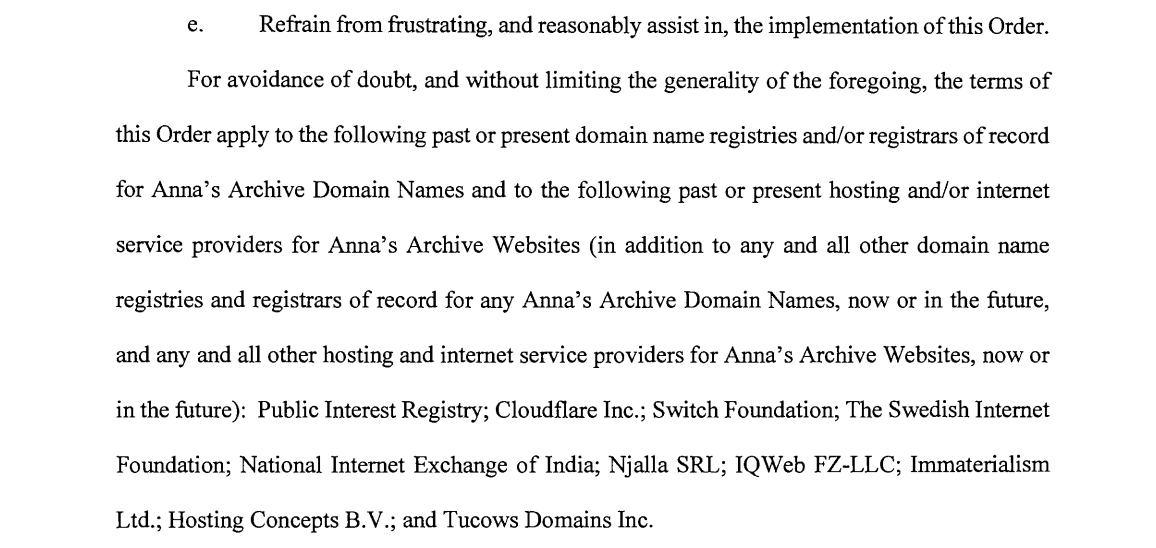
 For fans of manga and manhwa comics, Bato.to has been an icon for many years.
For fans of manga and manhwa comics, Bato.to has been an icon for many years.
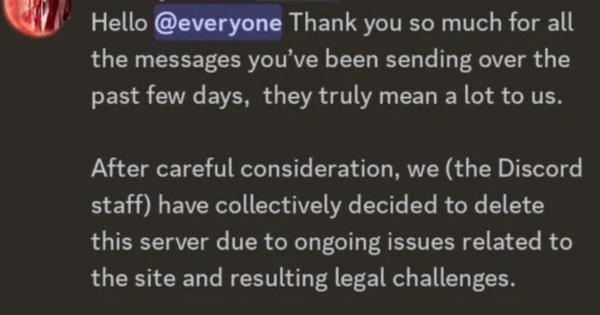
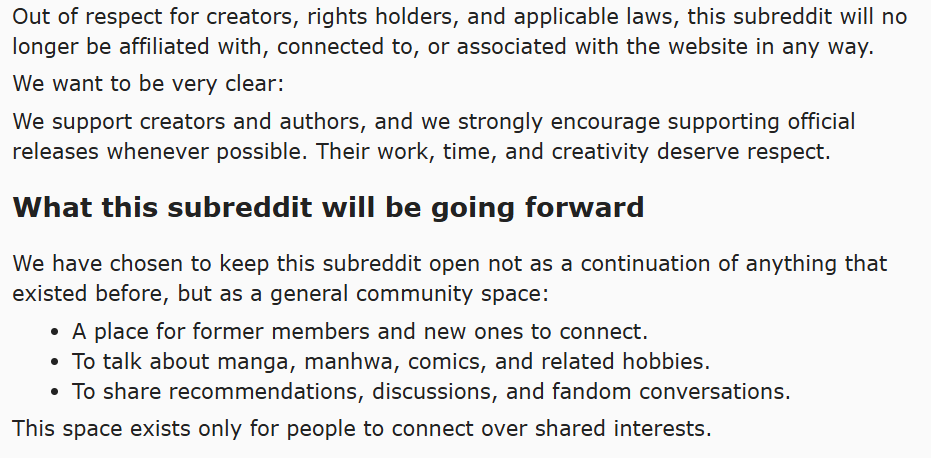


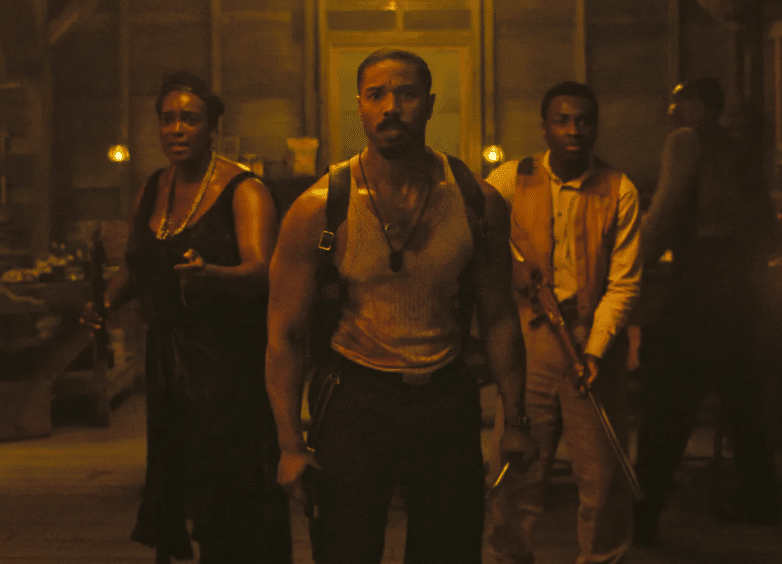 The Oscars remain the most anticipated movie awards show of the year, followed closely by hundreds of millions of film enthusiasts around the globe.
The Oscars remain the most anticipated movie awards show of the year, followed closely by hundreds of millions of film enthusiasts around the globe.
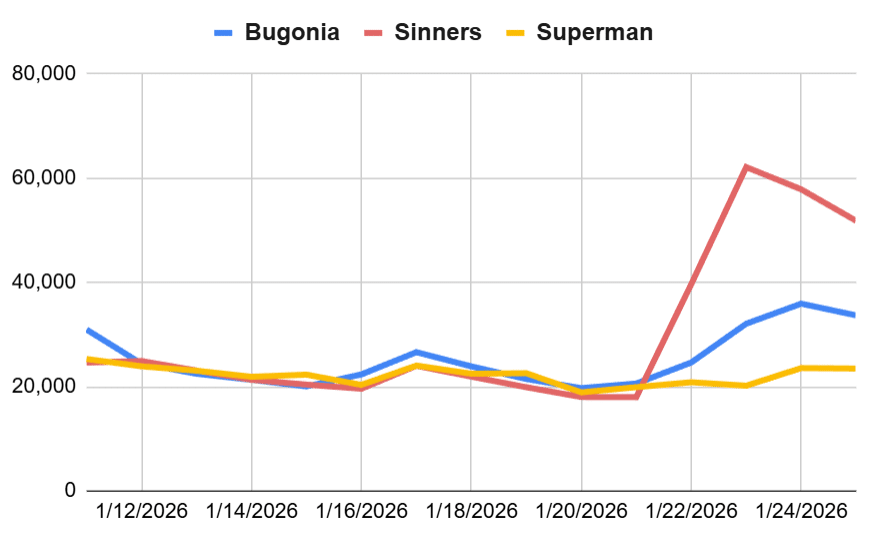
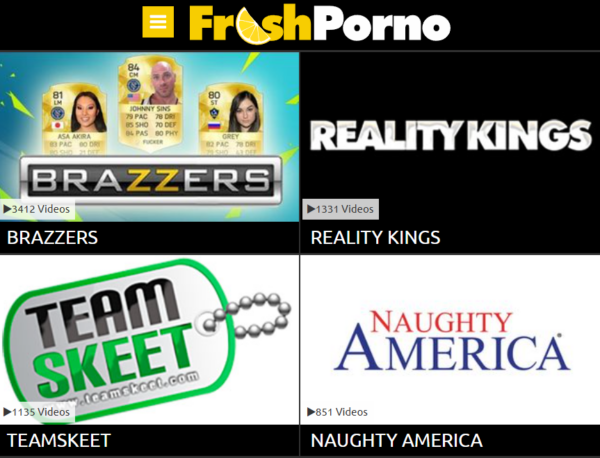 In recent years,
In recent years,
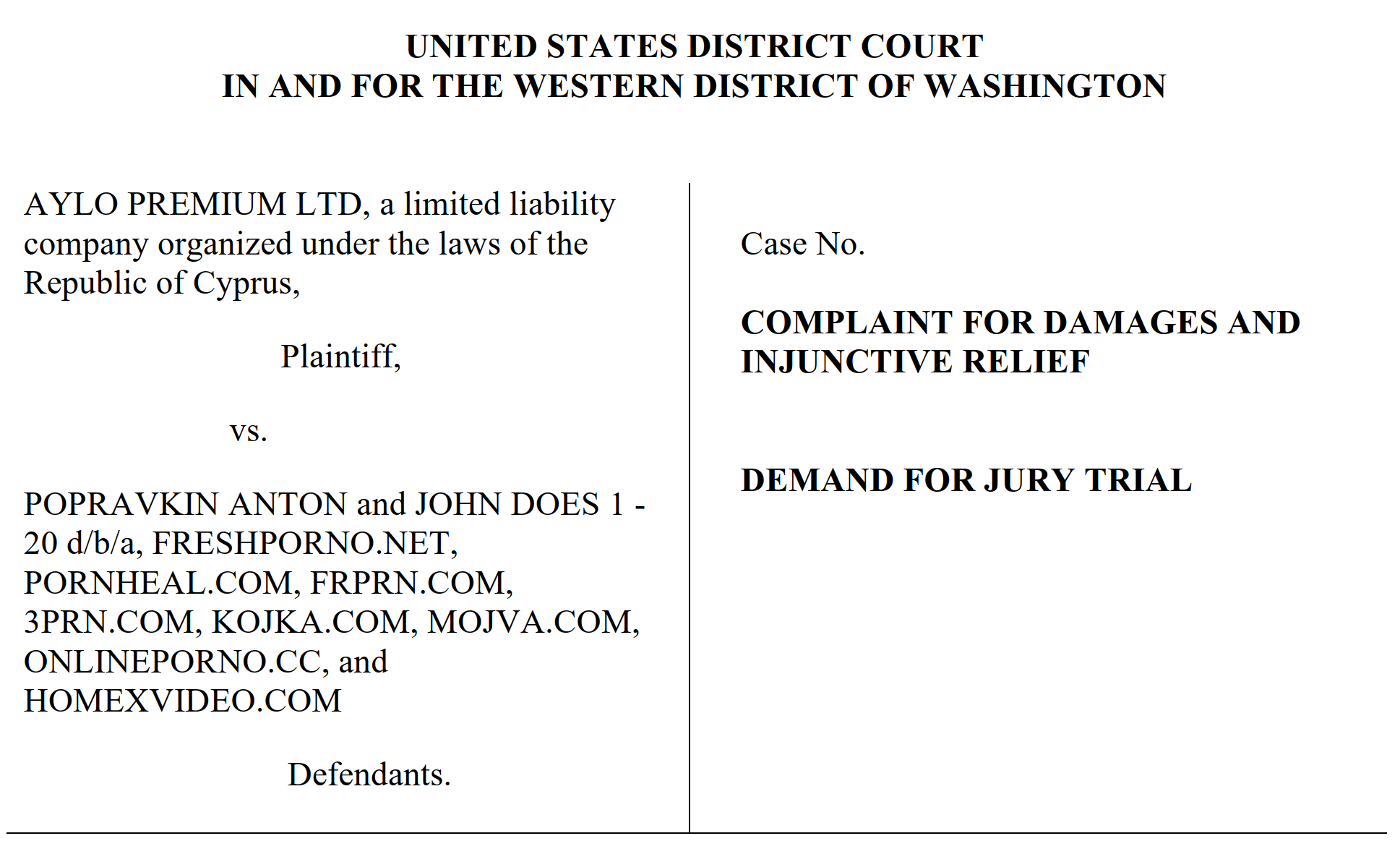
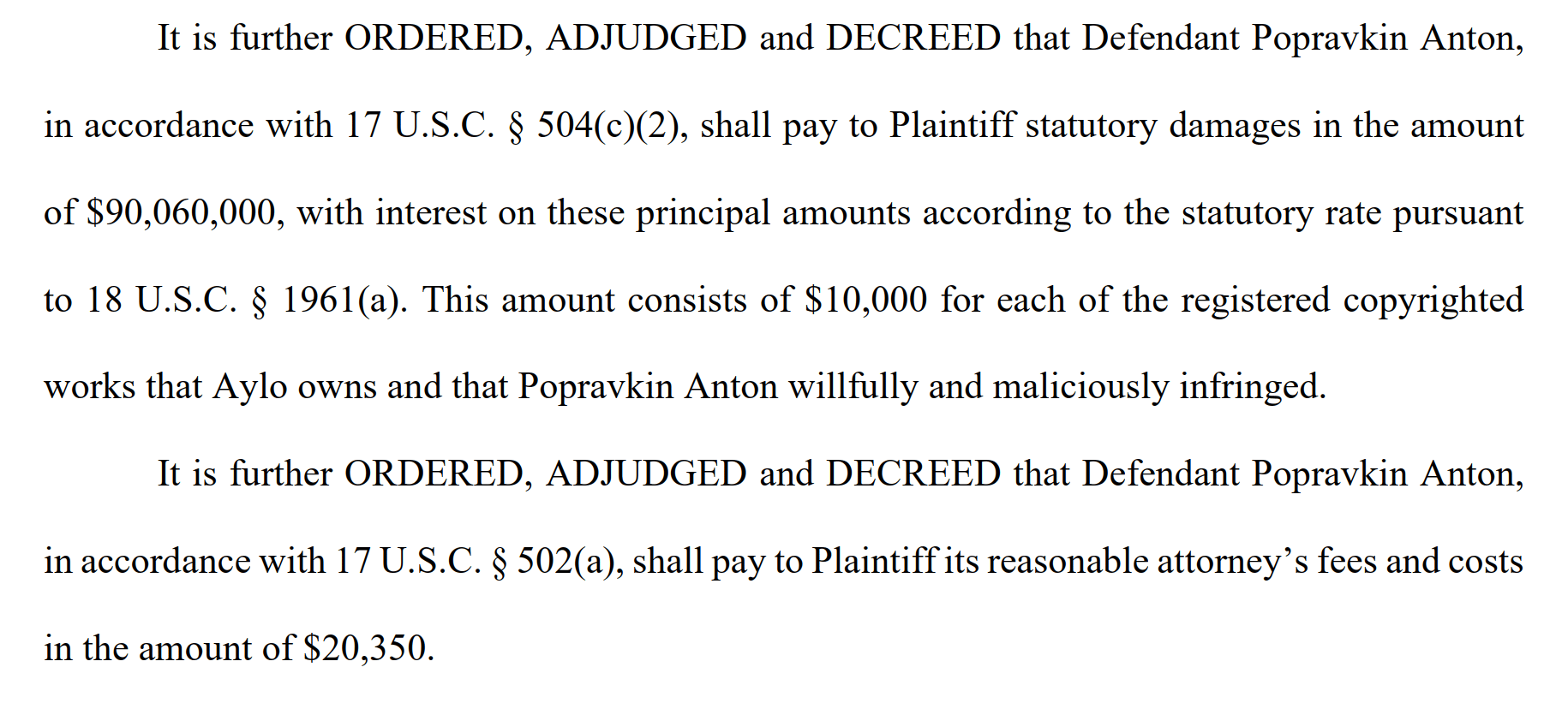


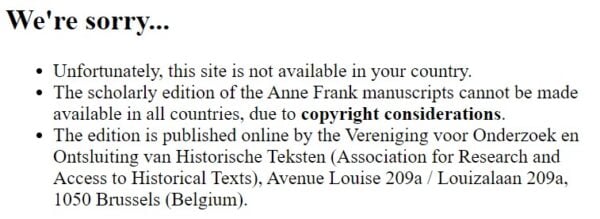
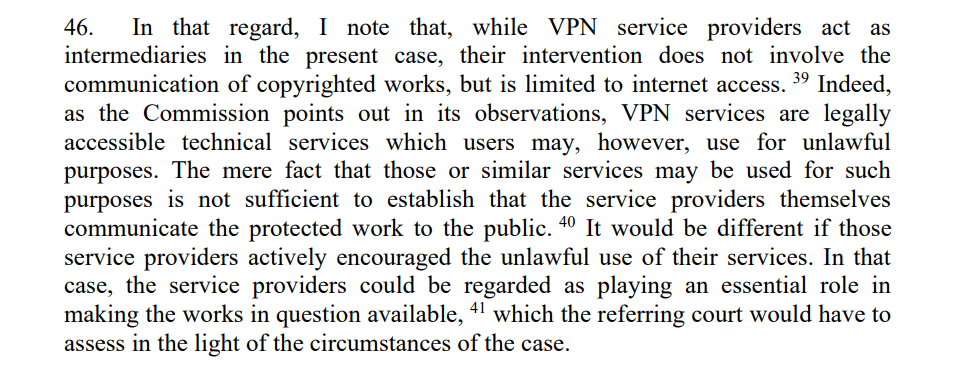
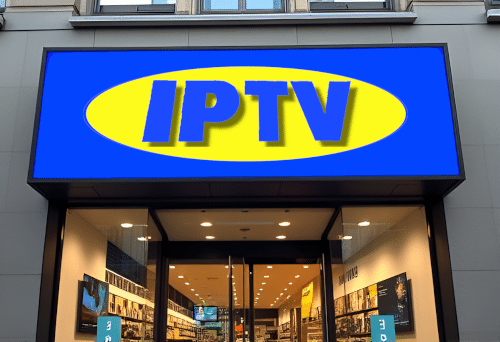 Originally the home of The Pirate Bay, Sweden has a long and well-documented history when it comes to online piracy.
Originally the home of The Pirate Bay, Sweden has a long and well-documented history when it comes to online piracy.
